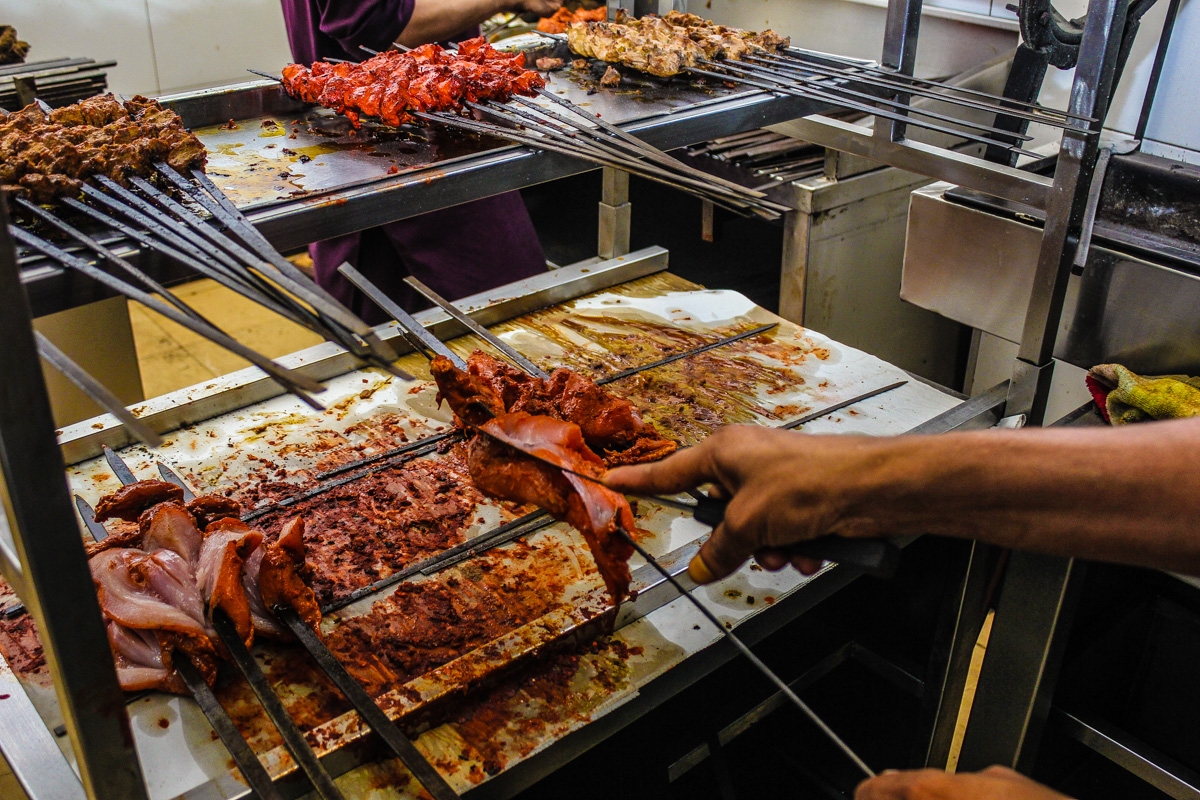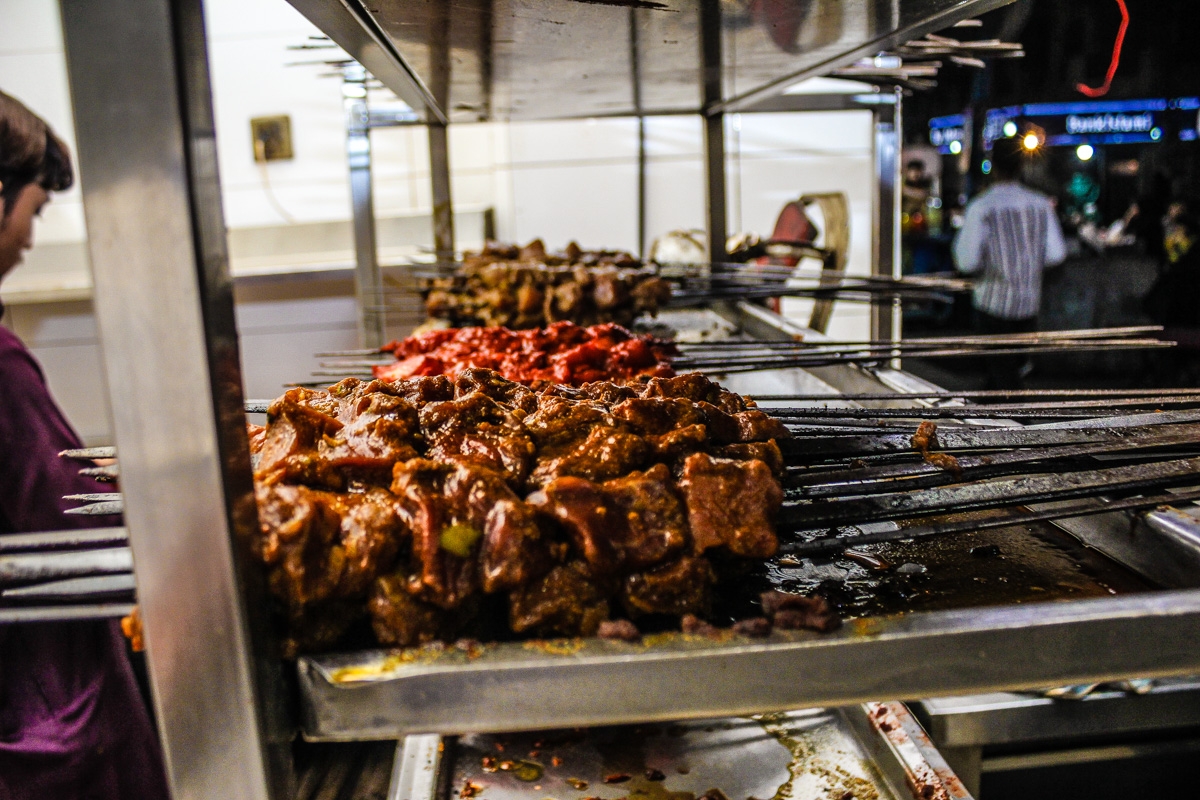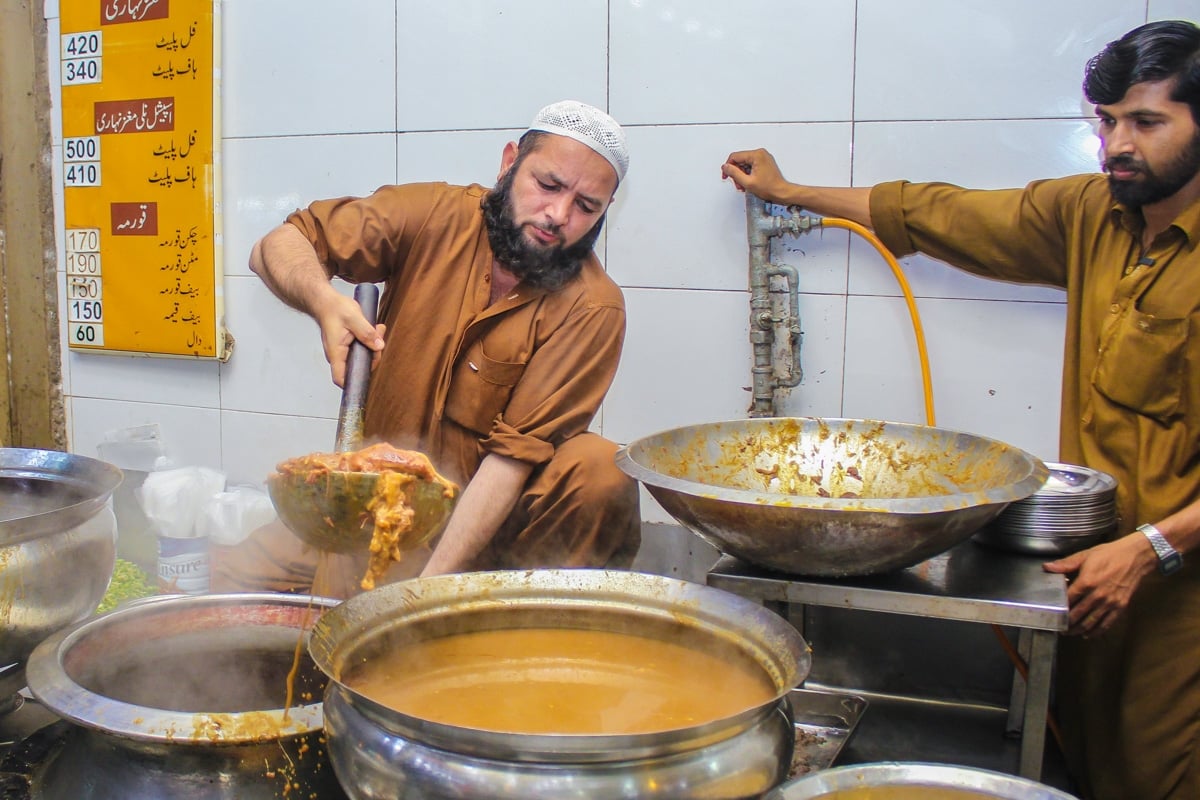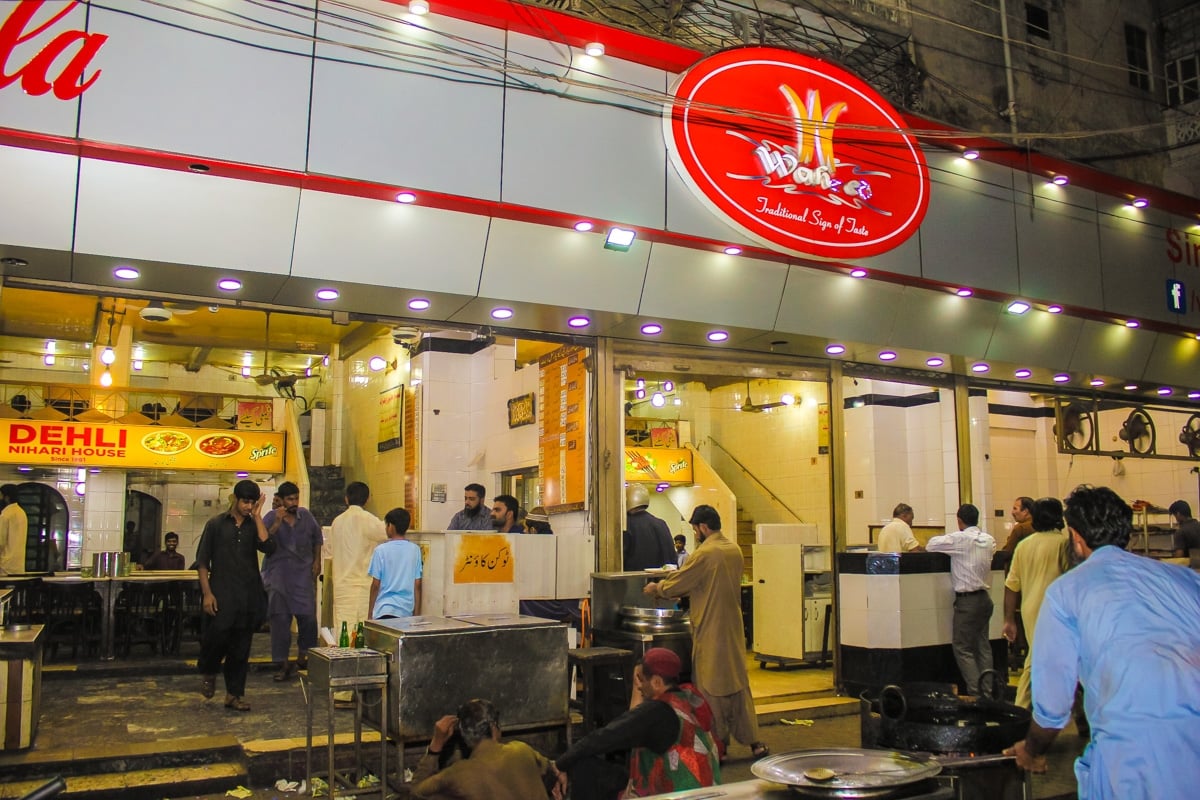

The history of barbecuing is as old as the discovery of fire near two million years ago. It was when our first human forebear called Homo erectus began charring meat to his taste during the early Stone Age.
We have been roasting juicy chunks of meat on a spit, stick or skewer since time not-very-well-known; however, the kebab, the way we know it, took a while before entering the culinary scene.
According to Sevan Nişanyan, a Turkish linguist, the word has descended from "kabab", which translates as "fry" in Persian. The word ‘kebab’ was used as food in a Turkish script “Kyssa-i-Yusuf in 1377. However, he asserts the word has an equivalent meaning of "frying/burning" with "kabābu" in the old Akkadian language, and "kbabā" in Aramaic. Akkadian is an extinct East Semitic language that was spoken in ancient Mesopotamia.
Legend has it food-strapped medieval soldiers, during their long-distance campaigns, would hunt game or rustle the villagers’ livestock and then use their swords, spears, or any other long pointy weapons as skewers to broil meat over open-field fires. Ironically, they weren’t doing anything revolutionarily new. It was but basic barbecuing without any adding seasonings to the meat and they called it kebab.
Kebabs fill the atmosphere with their appetizing aromas and the mouths with their tantalizing tastes almost everywhere in the world. This dish, touted to have originated in Near East, has evolved according to the gustative preferences of the people of any given region. It’s ruthlessly popular in Middle East, Central Asia, South Asia, Caucuses, Europe, Africa, etc.
Food historians say that it may have come in from the cold but the culinary artists of different cultures gave it a warm welcome and made it proverbially hot for the lovers of food with a little-big help from dozens of indigenous or exotic seasons, while some forward-looking chefs have never stopped experimenting to make it better.
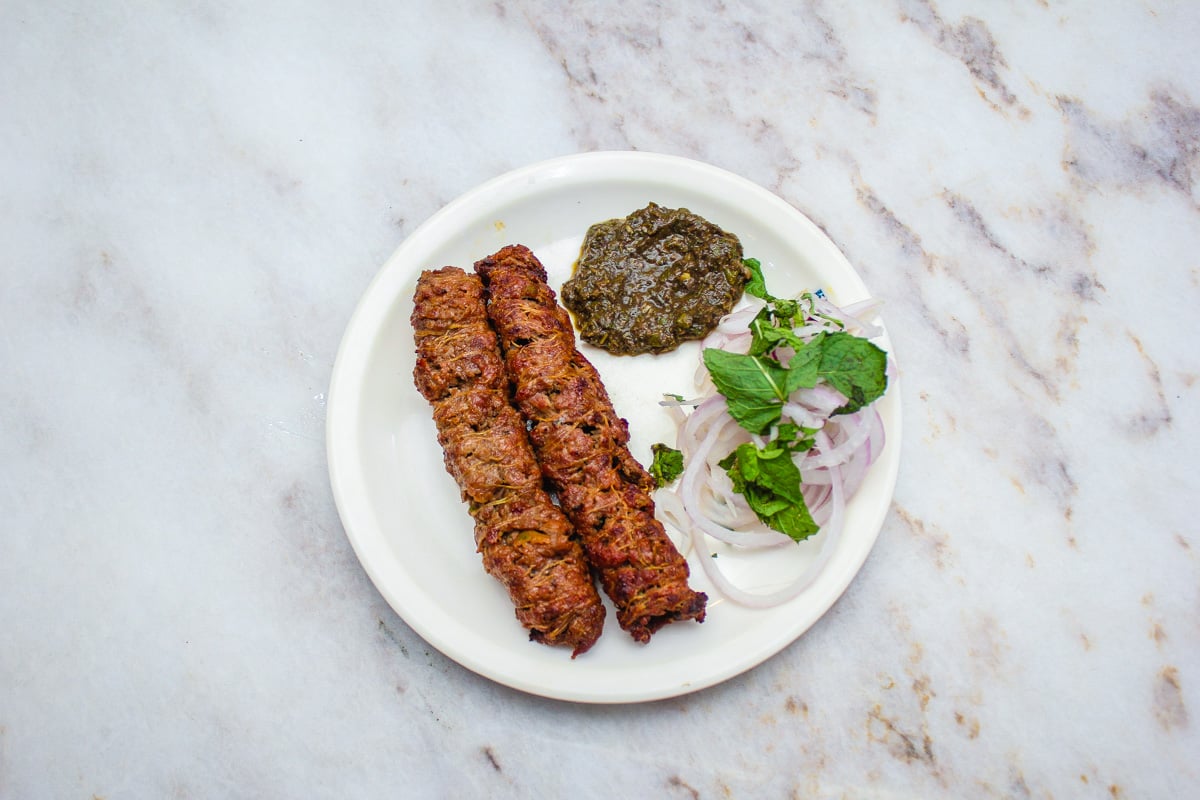
Dhaga Kebab, the thread is only used to hold the meat on the skewer.
The subcontinent relishes more than a dozen of popular kebab varieties. Reshmi (silky), dhaga (thread), dum (steamed), boti (cubes of meat), seekh (shish/skewer), chapli (Pashtun-style minced kebab), galouati (melt-in-mouth), bihari (an extremely tender variety), tandoori (cooked in clay oven), etc are among the most wanted of these meaty treats.
Thus kebabs get their traditional taste from traditional garam masala or hot spice (a motley of black and white peppercorns, cloves, cinnamon or cassia bark, mace (part of nutmeg), black and green cardamom pods, bay leaves, cumin),coriander seeds, cumin seeds, yoghurt, black pepper, lemon juice, eggs, cornstarch, wheat-flour, coriander leaves, tomatoes, and onions. Even when cold, kebabs, in this part of the world are hotter than most of their counterparts in the Mideast, Turkey, Iran, etc which tend to be shy of spices.
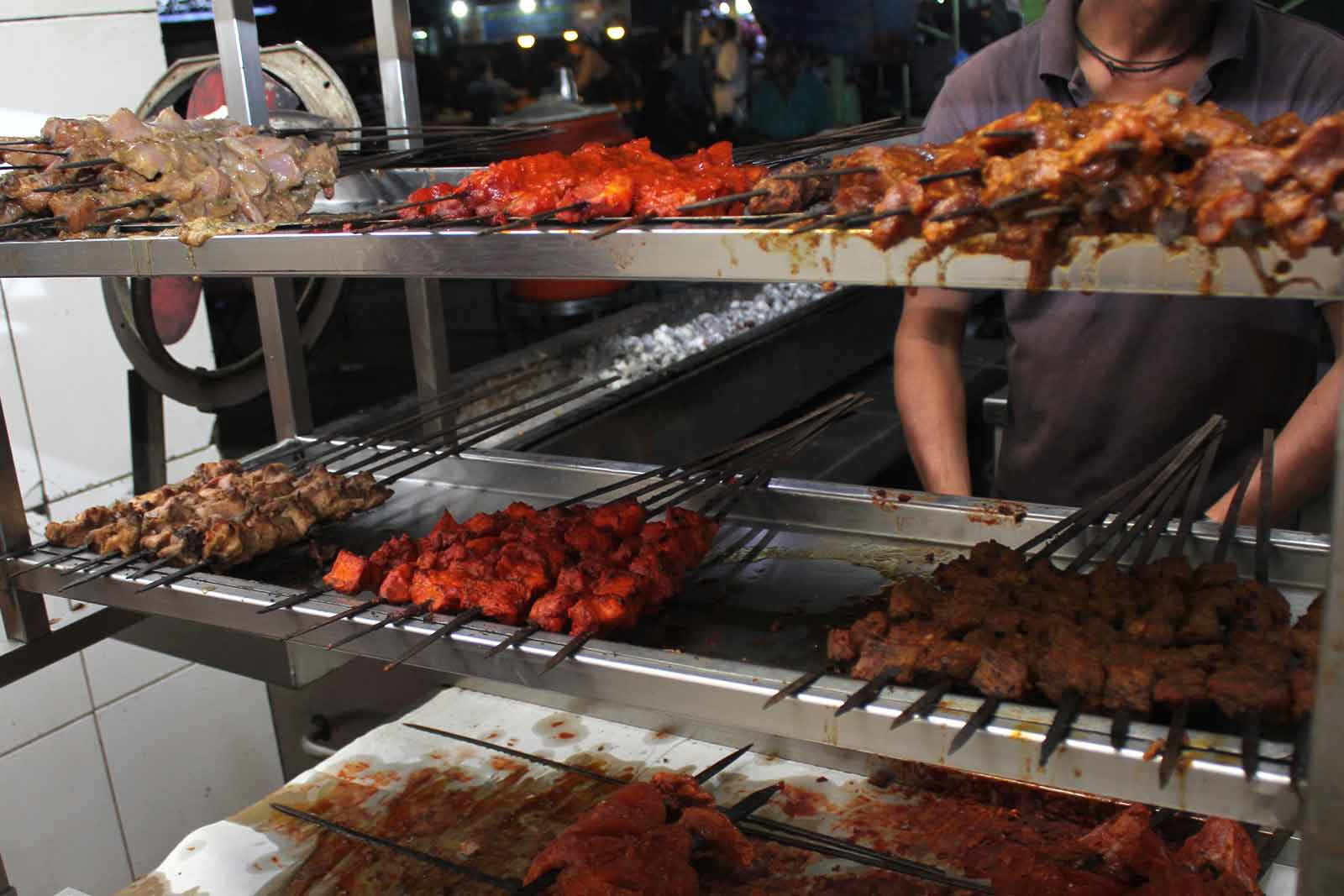
Ethnically diverse Pakistanis are viscerally foodies and when it comes to eating out, barbecued meats, i.e., chicken, mutton, beef, and even seafood especially in the form of kebabs, land on their plates before anything else. Everyone wants to have their kebab and eat it too, but finding the perfect kebab is a heck of job, but surely worth it.
Being a popular street and off-street food, kebabs can be found being grilled at every corner; on the worn out wobbly pushcarts, in the smoke-stained kiosks, grease-covered outlets, neat high-end eateries, and even five star hotels.
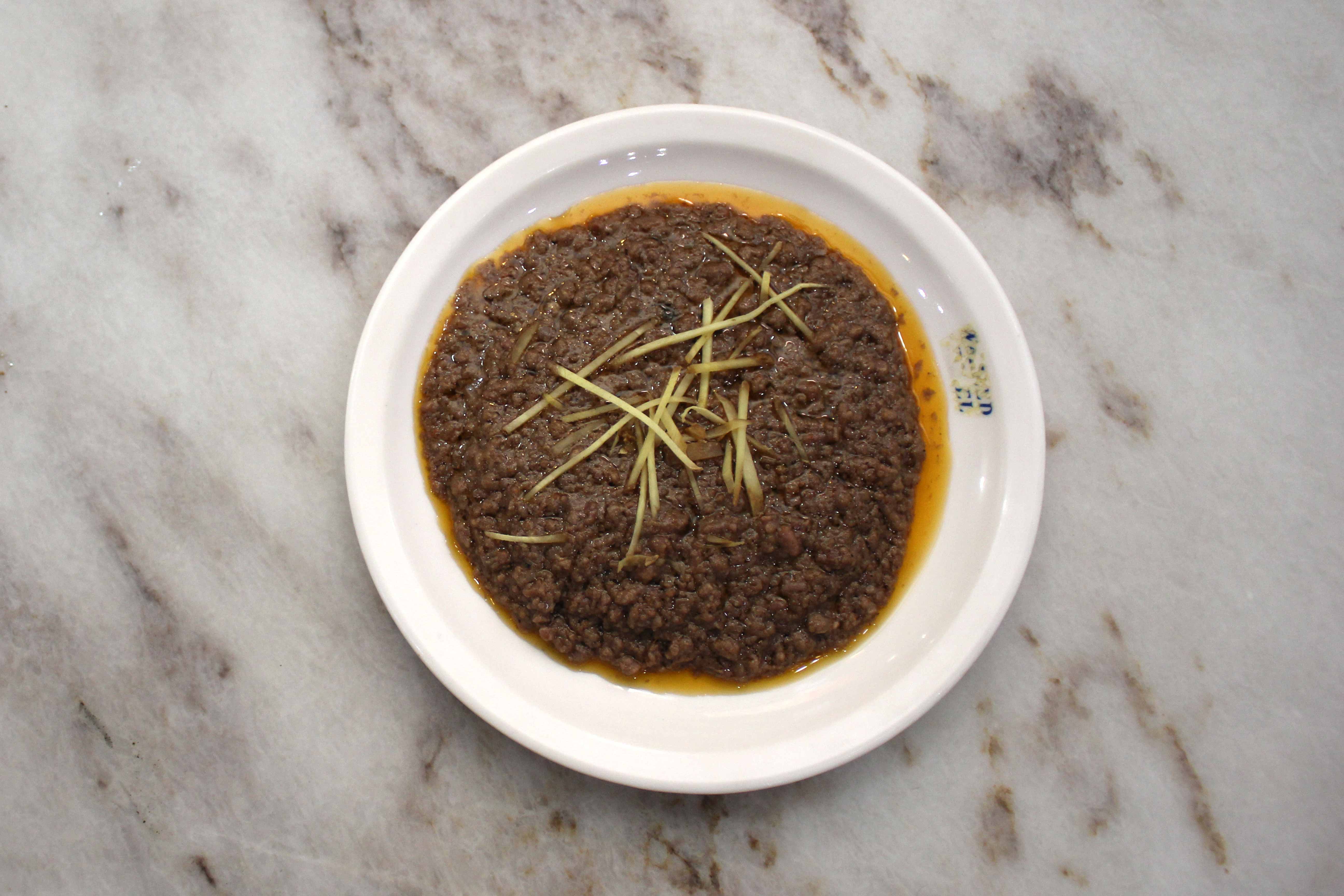
The latest innovation: Fry Kebab
They are literally everywhere but there’s an iconic food outlet in Karachi that is almost as old as Pakistan and its kebabs are as good as gold. They are the Delhi-walas. Their kebab recipes may have some influence of Mughal cuisine by the time they had started, but now their foods are more Pakistani than they have ever been. Let’s meet the cooking force behind the amazing “Waheed Kebab House” and a brisk walk down the history of their happening struggle and spicy success.
Wasif Shakil: Will you care to share with us when did you start rolling this business?
Iqbal Waheed: My father started pushing this business here in 1951 on a small handcart.
WS: Was it your father’s solo venture?
IW: No, he had his father as well as his father-in-law by his side. They always kept their fingers in the fire and built our business a solid base before buying a small shop here back in 1961.
WS: Did you migrate to Pakistan from India?
IW: Yes we did. Before landing in Karachi, we spent some time in Lahore. We first settled in Nana Para area of the metropolis, but we started our business at Burns Road, which is the oldest food street in the city. Later on, we moved to Liaquatabad, while it was still being populated.
WS: Where do you come from in India?
IW: From near the suburbs of Farash Khana, a Muslim-dominated neighbourhood near Ajmeri Gate, in Delhi.
WS: Why do you say it “From ’61 instead of ’51 since you claim to have started your business in that year?
IW: Actually, we made our true progress in the 60s, so it explains.
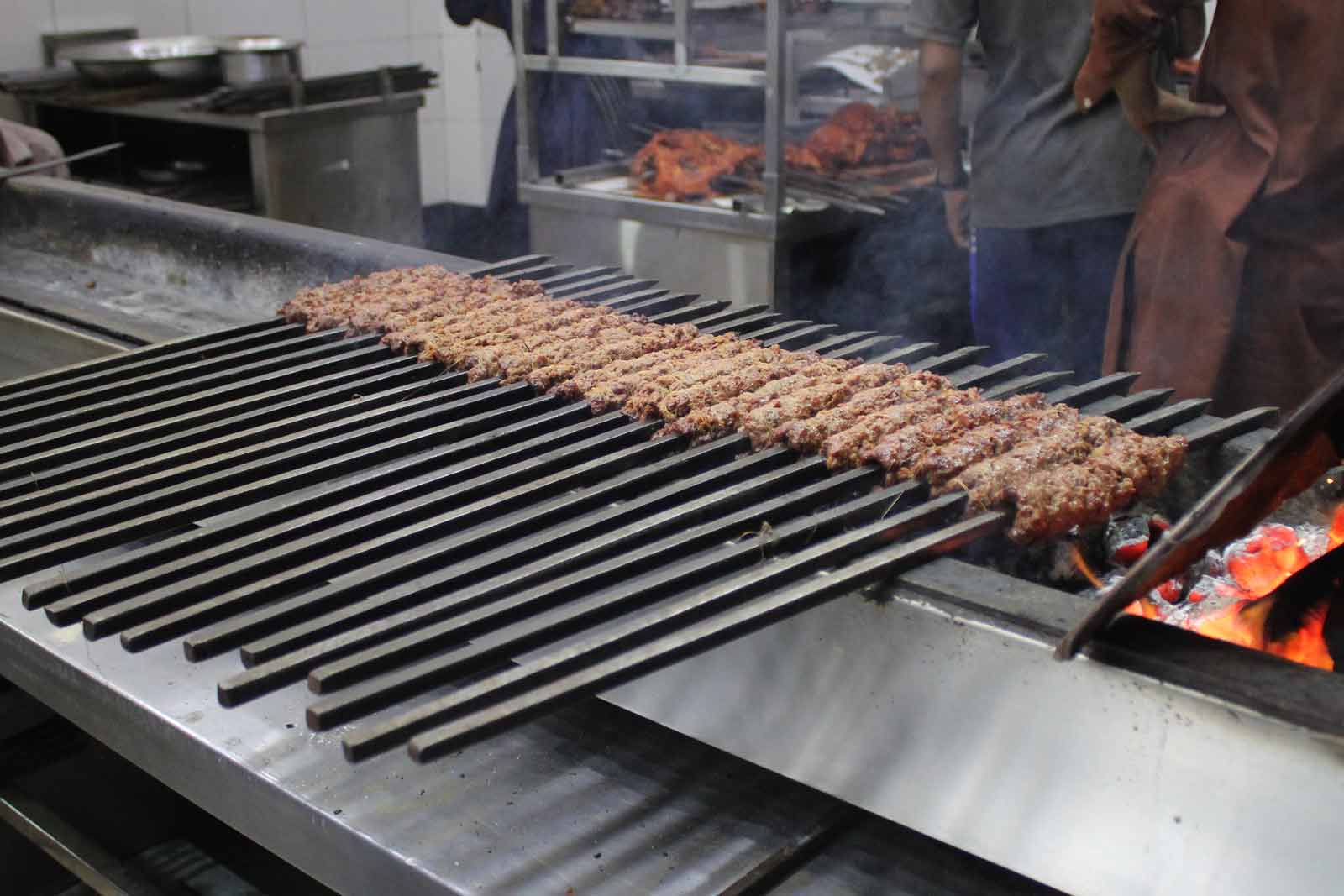
WS: What was your very first menu like? And did you have any competitors in Nihari back then?
IW: We would cook kebab, boti, and kheeri. Later we introduced Nihari, mutton quorma, chicken qeema, stew and on holidays we would also cook curry, gravy, fish curry, omelet, etc. In the late 60s Malik and a couple other restaurants did give us some competition in nihari.
WS: When did you join the business, are you the eldest in your siblings?
IW: I took the plunge in 1975, I reckon, I am right.
WS: Was your grandfather also in the same business back in Delhi?
IW: Yes actually our neighbourhood was populated by Punjabi Saudagaran-e-Delhi, thus my grandfather learned and thrived there. A large number of Saudagaran-e-Delhi migrated and settled around Burns road and we also ended up living here.
WS: Do you also belong to Punjabi Saudagaran-e-Delhi community?
IW: No, but we have very strong family terms with them. The most of them have now moved from here on to other localities.
WS: Was there any difference between the foods your grandfathers used to sell in Delhi before partition and the ones they launched their business in Karachi?
IW: In Delhi, we only produced barbecue such as kebab and boti, and that’s exactly what we started with here.
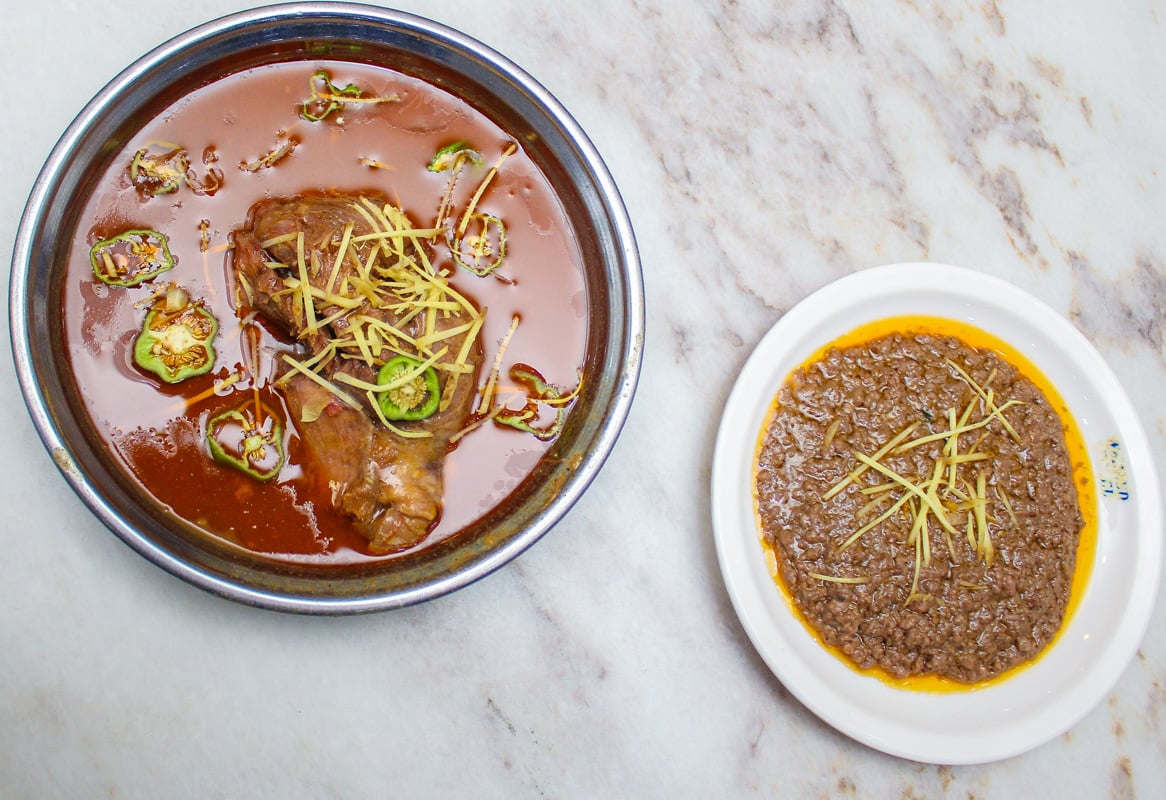
WS: The kebab you barbecued there were thread-kebab or simple ones?
IW: We did thread kebabs there and brought the same recipe here. Later, we introduced fried kebab as well as people were sold to it like crazy.
WS: What makes your kebabs so unique?
IW: The credit goes to our father, who put himself through some suffering in order to attain the best of tastes a kebab can reach. He would literally try different things everyday with the intention to seek taste better than the day before and that’s how it got the edge it has now.
WS: So after many years, have there been any complaints, from your customers regarding the variation in change?
IW: People still come to us with their sons and grandsons and admit that our taste has not yet changed even slightly to date. It is still reminiscent to the taste we started out with.
WS: Have you, like your father, tried to improvise and come up with some new practice yourself?
IW: Yes we recently introduced malai boti, chicken boti etc.
WS: Do you plan to expand your business in terms of your menu? Have you ever consider producing food for diverse consumers?
IW: No we are good with what we are offering at the moment. Our nihari is doing pretty great.
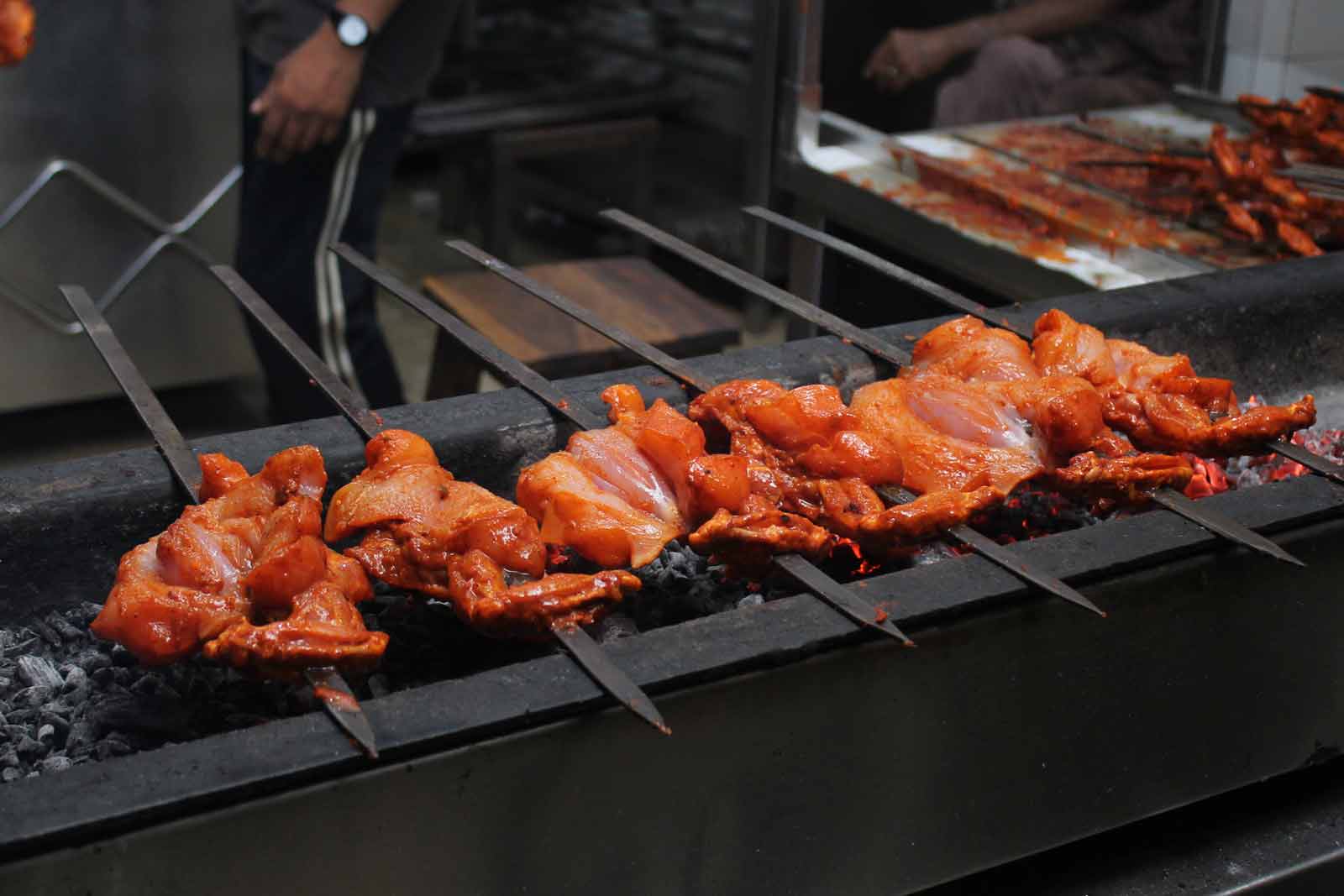
WS: Do your kids help you out in the business?
IW: No, not yet. We four brothers are handling the business.
WS: The law and order situation of city has a direct impact on the business environment. Does your business also suffer on those days?
IW: Obviously! Our product must be sold out once it’s cooked. It doesn’t have a very long shelf life.
WS: Do people living in other parts of Pakistan or overseas also crave your food? Have you ever received orders for export? Or received requests for canning food to take outside?
IW: Yes they do. The fans of foods are all over the world. Customers often tell us that their relatives or friends, usually from UAE and Saudi Arabia, love our foods and want them delivered to them. We’d love to do it, but right now we don’t have a tin-packing service.
WS: Please tell us about your schooling?
IW: I studied until my first year of college and then dropped out, while one of my brothers stopped after finishing his matriculation (tenth grade).
WS: Does your father still accompany you at the restaurant?
IW: No, he seldom shows up here. He spends most of his active time at our factory, which is nearby.
WS: Any fond memories you would like to share with us? Any incident or visits by celebrities or politicians?
IW: I remember Golu Pehalwan, Indian cricket team, (almost a couple of decades ago) and many celebrities from film, TV, and stage visiting us. Apart from that whenever there is a special occasion, rally, procession, or a sporting event etc, people, no matter where they are, usually end up feasting on our delicious dishes to end their day on a tasty as well as satisfying note. Anyone, who samples our food, becomes our ‘taste ambassador’ for good and that’s a given.









